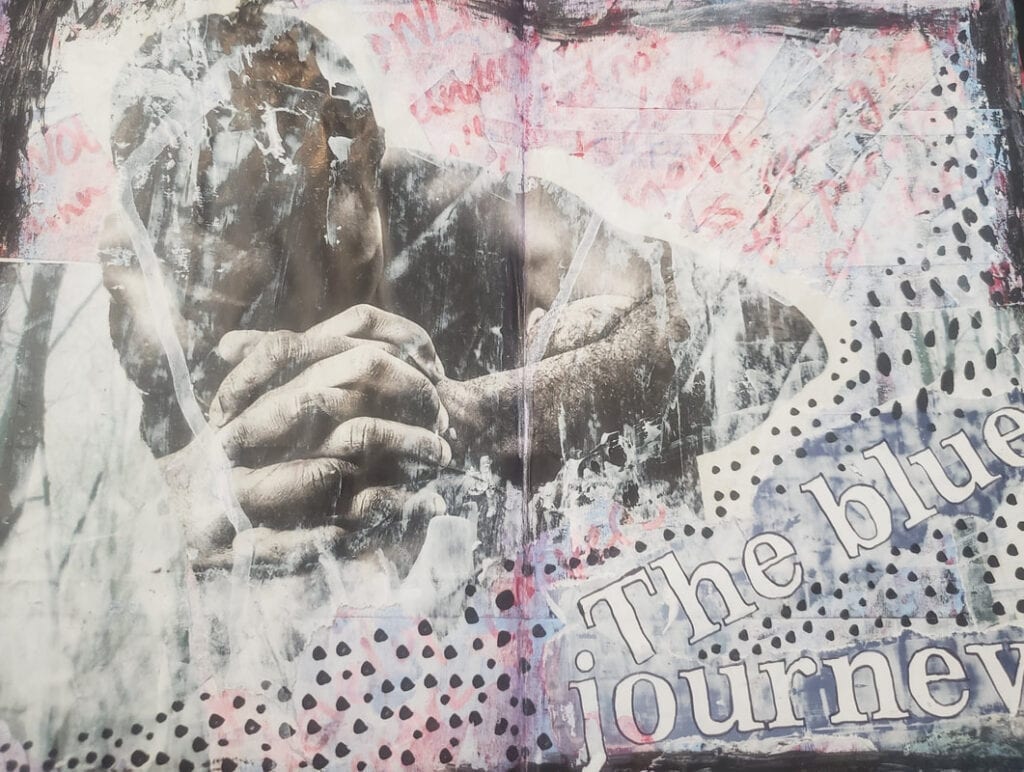If 2020 has taught us anything, it is that there is no shortage of things that are outside of our control or even ability to manage. Reflecting on the recent supreme court confirmation only reinforces some of these feeling of hopeless and/or helplessness. I won’t even attempt to begin to list out all of the injustices and traumatic occurrences that have been brought to the surface this year. Songstress Sarah McLachlan truly said it best, “Hearts are worn in these dark ages. You’re not alone in this story’s pages. The light has fallen amongst the living and the dying. And I’ll try to hold it in, yeah, I’ll try to hold it in. The world’s on fire, it’s more than I can handle.”
With the world being on fire – literally and figuratively – one of the primary things I have found to be helpful during this time has been turning to Dialectical Behavior Therapy’s skill of Radical Acceptance. For those of you reading this who do not know what DBT is, below is a brief description by the developer of the therapy, Marsha Linehan. “Dialectical Behavior Therapy is a broad-based cognitive-behavioral treatment originally developed for chronically suicidal individuals diagnosed with Borderline Personality Disorder (BPD). Consisting of a combination of individual psychotherapy, group skills training, telephone coaching, and a therapist consultation team, DBT was the first psychotherapy shown through controlled studies to be effective with BPD. Since then, multiple clinical trials have been conducted demonstrating the effectiveness of DBT not only for BPD, but also for a wide range of other disorders and problems, including both undercontrol and overcontrol of emotions and associated cognitive and behavioral patterns. Furthermore, an increasing number of studies suggest that skills training alone is a promising intervention for a variety of populations…” (Linehan, 2015).
Essentially, DBT is a good way to find stability in the storm or calm in the chaos. Arbeitman, Goodwin-Brown, and Loomis (2016) give the example that “DBT manages the fires [of life]”. Considered part of DBT’s Distress Tolerance module, Radical Acceptance allows us to keep pain from turning into suffering through accepting the factual nature of reality without reactivity or laxity. Linehan explains that Radical Acceptance is not about approval or happiness regarding the source of pain but is rather accepting with our whole-selves that we cannot change the present situation. “By choosing to radically accept the things that are out of our control, we prevent ourselves from becoming stuck in unhappiness, bitterness, anger and sadness and we can stop suffering” (Harris, 2020). Basically, the skill of Radical Acceptance is the idea that “it is what it is”. One of my former colleagues taught me a great DBT lesson when it comes to life’s various problems. She said, “Rachel, you’ve got four options: 1. You can solve the problem, 2. Change how you feel about the problem, 3. Accept the problem, or 4. Do nothing and stay miserable” (Linehan, 2015). Therefore in 2020, with the attempt to “feel better”, a lot of our only options are #2 and #3. That’s where Radical Acceptance comes in.
All of this sounds fine and dandy, but how in the hell do you do Radical Acceptance when the waves are rising – or worse – are already over your head? (Hence, the radical part of Radical Acceptance). Linehan (2015), provides a step-by-step process on how to implement and practice this skill. She shares:
- Observe that you are questioning or fighting reality (“It shouldn’t be this way”)
- Remind yourself that the unpleasant reality is just as it is and connect be changed (“This is what happened”).
- Remind yourself that there are causes for the reality. Acknowledge that some sort of history led up to this very moment. Consider how people’s lives have been shaped by a series of factors. Notice that given these causal factors and how history led up to this moment, this reality had to occur just this way (“This is how things happened”).
- Practice accepting with the whole self (mind, body, and spirit). Be creative in finding ways to involve your whole self. Use accepting self-talk—but also consider using relaxation; mindfulness of your breath; half-smiling and willing hands while thinking about what feels unacceptable; prayer; going to a place that helps bring you to acceptance; or imagery.
- Practice opposite action. List all the behaviors you would do if you did accept the facts. Then act as if you have already accepted the facts. Engage in the behaviors that you would do if you really had accepted.
- Cope ahead with events that seem unacceptable. Imagine (in your mind’s eye) believing what you don’t want to accept. Rehearse in your mind what you would do if you accepted what seems unacceptable.
- Attend to body sensations as you think about what you need to accept.
- Allow disappointment, sadness, or grief to arise within you.
- Acknowledge that life can be worth living even when there is pain.
- Do pros and cons if you find yourself resisting practicing acceptance.
Now that you have some new tools in your toolbox you might be thinking “this sounds highly defeatist; shouldn’t we be doing something to directly change and address all the insidiousness of 2020?” The short answer is yes, we should be doing something. However, can we as an individual go directly in-person to the supreme court and through our personal power and will alone protect certain laws – like LGBTQIA+ protections – from being overturned or rolled back? No – that’s when we have to use Radical Acceptance. So why utilize the skill of Radical Acceptance at all, why accept reality? DBT has an answer for that as well (Linehan, 2015).
- Rejecting reality does not change reality.
- Changing reality requires first accepting reality.
- Pain can’t be avoided; it is nature’s way of signaling that something is wrong.
- Rejecting reality turns pain into suffering.
- Refusing to accept reality can keep you stuck in unhappiness, bitterness, anger, sadness, shame, or other painful emotions.
- Acceptance may lead to sadness, but deep calmness usually follows.
- The path out of hell is through misery. By refusing to accept the misery that is part of climbing out of hell, you fall back into hell.
Therefore, when the alarm goes off on the morning of November 4th and you see the worst has happened or when the storms of 2020 continue to rage into 2021 (heaven forbid both) – what will you do? Will you attempt to use a skill like Radical Acceptance, or will you choose option #4 – do nothing and stay miserable? I believe the doing-nothing-option is no longer on the table for us anymore as an individual, society, or species. Choose wisely.
References
Arbeitman, D., Goodwin-Brown, R., & Loomis, G. (2016, April). Integrating dialectical behavioral therapy (DBT) and EMDR with suicidal and self-injuring clients. Presentation at the 12th Western Mass Regional Network Spring Conference, Amherst, MA
Harris, A. (2020). Radical Acceptance in a Time of Uncertainty. Blog Post from HopeWay. https://hopeway.org/blog/radical-acceptance
Linehan, M. (2015). DBT Skills Training Handouts and Worksheets, Second Edition. The Guilford Press.
Linehan, M. (2015). DBT Skills Training Manual, Second Edition. The Guilford Press.
McLachlan, S. (2004). World on Fire. Music – Song lyrics.





One Response
Thank you